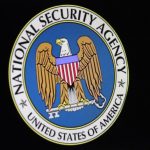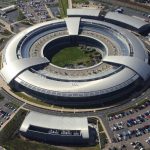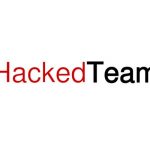Snowden: web restrictions are 'wrong in Russia, would be wrong anywhere'

Edward Snowden might be holed up in Russia, but that's not going to stop him from criticizing the country. While accepting the Norwegian Academy of Literature and Freedom of Expression’s Bjornson prize, the former NSA contractor used a speech to call Russia's attitude to internet freedom and homosexuality as "fundamentally wrong".
The US government has indicated that it has no intention of pardoning Snowden so he remains in exile -- for now, this is in Russia. Not shy to court controversy -- and possibly biting the hand that feeds -- he has hit out at the Russian government saying that its control and restrictions it places on the web are a "mistake in policy".
Snowden: Hilary Clinton's personal email server likely exposed sensitive national intelligence

If anyone else at the State Department made use of a personal email server to discuss sensitive information, they would have been fired and prosecuted, says Edward Snowden in a scathing attack on Hilary Clinton.
The former NSA worker hit out at the Democratic presidential candidate in an interview with Al Jazeera. He said that Clinton was probably aware that using a personal email address had exposed sensitive national intelligence, describing it as 'a problem'.
NSA wants to future-proof encryption standards against quantum computers

The NSA is concerned that current methods of cryptography, used to encrypt data and ensure that if it does fall into the wrong hands it’s not readable or usable, are going to be woefully inadequate and easily broken when quantum computers come into play.
Of course, this isn’t going to be something that happens in the near future, as quantum computers -- which instead of bits, use qubits that can hold three states instead of the usual binary 0 or 1 -- are still merely conceptual in nature, and won’t be fully realized for many decades yet.
New Snowden documents show AT&T helped the NSA spy on internet traffic

The NSA has been helped by AT&T for decades in spying on huge quantities of internet traffic new-disclosed documents reveal. The astonishing relationship between the National Security Agency and the telecoms company goes far beyond any sort of arrangement or co-operation that came from other firms.
Evidence published by the New York Times shows that the NSA had arrangements in place with AT&T and Verizon, but the partnership with AT&T proved particularly lucrative. The communications giant added surveillance equipment to at least 17 of its web centers and was used as a testing ground for new spying technologies and techniques. All this is revealed in a new batch of documents provided by Edward Snowden.
Obama administration rules out pardoning Edward Snowden

The US government will continue to pursue Edward Snowden with a view to prosecuting him on espionage charges. The White House has rejected calls to pardon for Snowden who has been hailed as both a hero and a traitor for spilling the beans about NSA surveillance programs. The US government has sought to bring him to trial for compromising national security.
A We Are The People petition was signed by nearly 168,000 people who felt rather differently about the former NSA worker. "Edward Snowden is a national hero and should be immediately issued a full, free, and absolute pardon for any crimes he has committed or may have committed related to blowing the whistle on secret NSA surveillance programs".
Amnesty International seeks explanation for 'absolutely shocking' government surveillance

A court recently revealed via email that the UK government had been spying on Amnesty International. GCHQ had put Amnesty under surveillance -- despite this having previously been denied -- and now the human rights organization wants answers.
In a letter to the UK Prime Minister David Cameron, Amnesty International asks for an explanation for the surveillance. The Investigatory Powers Tribunal's (IPT) email made it clear that GCHQ had been intercepting, accessing and storing communications, something that Amnesty International's Secretary General, Salil Shetty believes "makes it vividly clear that mass surveillance has gone too far".
NSA releases network security tool -- will IT admins use it?

The NSA has released a network security tool that it claims is designed to help organizations "fortify their networks against cyber attacks". But, after being revealed to be spying on just about anyone it wants to, from US citizens to leaders of allied governments, while undermining major tech firms in the process, IT administrators will likely be very skeptical of adopting it.
Seemingly to put security concerns to rest, the security tool is made available through GitHub, making it easy for security researchers to analyze the code and find weaknesses -- of any kind -- that could put networks at risk.
The man who cared about your online privacy has died

Caspar Bowden, the privacy advocate who was warning about the activities of the NSA before Edward Snowden, has died. The co-founder of the Foundation for Information Policy Research lost his battle with cancer, and tributes have been paid by the world of technology.
Bowden, the former head of privacy at Microsoft, had long-warned about potential backdoors in software and services. He campaigned passionately for the privacy of the individual and voiced grave concerns about the NSA and the FISA Amendment Act. He sat on the board of Tor and was one of the most knowledgeable and well-loved figures on the privacy scene.
Major threat: Hacking Team warns its spying tools are now in the hands of terrorists

Following a massive security breach over the weekend, Hacking Team has issued a warning that its surveillance and remote access software could now be used by anyone -- including terrorists. The Italian security and surveillance firm fell victim to an attack that relieved it of 400GB of company data, including source code for its software.
Whoever was responsible for the security breach made this data available via torrent, meaning that anyone was able to get hold of it. Hacking Team's software is favoured by governments around the world for mounting NSA-style surveillance and monitoring programs and the company has now issued a stark warning: "Terrorists, extortionists and others can deploy this technology at will if they have the technical ability to do so".
NSA's XKeyscore may be collecting your Skype, webcam and router data

The NSA's covert data collection has become the worst kept secret in the world. Edward Snowden blew the lid off the program and has released many documents providing validity to what he has said. While he continues to harbor in Russia, the US is split over whether he is a traitor or hero. Whistle blowers certainly aren't new -- they date back many years and include the famous Deepthroat who revealed Watergate.
Now more information has come to light in the form of XKeyscore, a program designed to glean data from user's router, webcam and Skype calls. It's just as scary as it sounds.
Hacking Team hacked as tables turn on notorious surveillance company

Italian security and surveillance firm Hacking Team appears to have itself fallen victim to a security breach. Hacking Team produces software which is used by governments around the world as part of their surveillance programs. The company has been criticized for facilitating invasions of privacy, and, over the weekend, its Twitter feed was taken over, resulting in its name and profile picture being changed to read Hacked Team.
But this is far from being the end of the story. Whoever is responsible for the security breach also released a torrent file that provides access to 400GB of company data. Included in the cache are emails, source code, and confidential documents. The files reveal who the company has been dealing with including a number of countries known for their oppressive regimes.
UK government illegally spied on Amnesty International

A court has revealed that the UK intelligence agency, GCHQ, illegally spied on human rights organization Amnesty International. It is an allegation that the agency had previously denied, but an email from the Investigatory Powers Tribunal backtracked on a judgement made in June which said no such spying had taken place.
The email was sent to Amnesty International yesterday, and while it conceded that the organization was indeed the subject of surveillance, no explanation has been offered. It is now clear that, for some reason, communications by Amnesty International were illegally intercepted, stored, and examined. What is not clear is when the spying happened, what data was collected and, more importantly, why it happened.
What is Facebook not telling us about machiavellian censorship?

Just a few days ago the Electronic Frontier Foundation published its annual Who Has Your Back report looking at how various technology companies treated customer privacy. The report makes for interesting reading, but it also raises some questions. One question that has cropped up several times is "how the hell did Facebook get a rating of 4 out of 5!?"
As well as rating Mark Zuckerberg's social network in terms of its privacy policies and how it responds to government data request, the EFF also probes the hidden censorship that appears to be going on. There have been numerous examples of blatant censorship from Facebook -- including blocking certain pages in Turkey -- and while this is worrying (particularly when the social network's founder is looking to connect the world to the web with Internet.org) what is perhaps more concerning is the censorship we don't know about. The silent censorship that's going on the in the background.
Snowden files hacked by China and Russia

UK secret services say that the encrypted files Edward Snowden held from his time working at the NSA have been accessed by intelligence agencies in China and Russia. The Sunday Times reports that the top secret files have been hacked meaning that British and American spies could be identified and located.
Wanted by US authorities, Snowden has been in hiding for some time now. It is believed that the time he spent seeking refuge in Hong Kong and Moscow may have given security official the opportunity to access the data he held. Although the data was protected, it is thought that the encryption was hacked, and US and UK intelligence services have been "forced to intervene and lift their agents from operations to prevent them from being identified and killed".
Wikimedia secures connections with HTTPS encryption by default

There is a movement calling for the encryption of all web traffic. The cause of this could be laid at Edward Snowden's door, but there's no getting away from the fact that in recent years there is an increased interest in security and privacy. To this end, Wikimedia has announced that it is now using HTTPS to encrypt all of its traffic -- including that to Wikipedia.
We've already seen the US government embrace HTTPS, and companies like Google and Facebook are making it easier to control privacy settings. Apple has hit out at companies that fail to do enough to protect users' privacy, and Wiki media is taking the extra step of also implementing HSTS, just days after Microsoft announced that this would be supported by Internet Explorer 11 under Windows 7 and 8.1.
Recent Headlines
Most Commented Stories
BetaNews, your source for breaking tech news, reviews, and in-depth reporting since 1998.
Regional iGaming Content
© 1998-2025 BetaNews, Inc. All Rights Reserved. About Us - Privacy Policy - Cookie Policy - Sitemap.